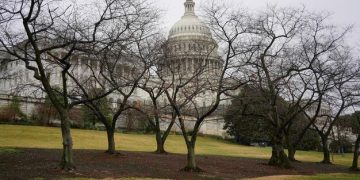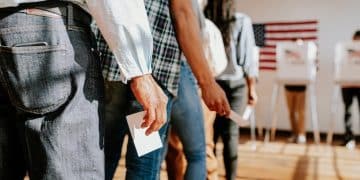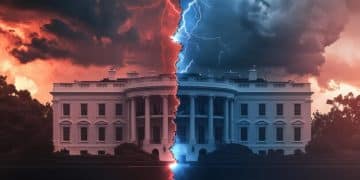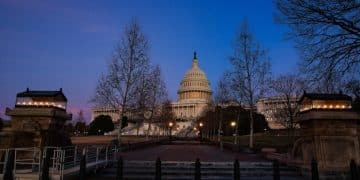2025 Supreme Court: How Rulings Could Reshape US Politics
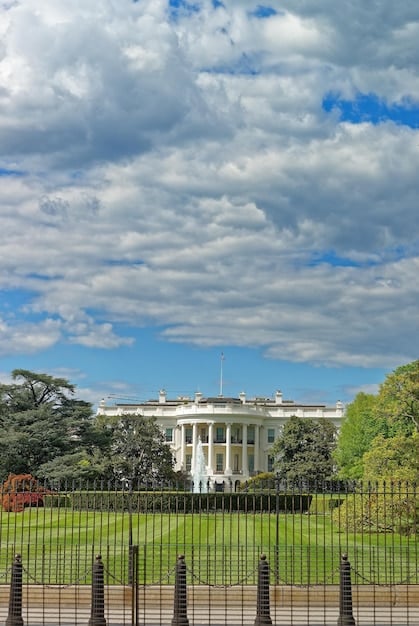
The 2025 Supreme Court rulings have the potential to significantly reshape the US political landscape, impacting areas such as voting rights, environmental regulations, and individual liberties, depending on the cases brought before it.
The composition of the Supreme Court and the nature of the cases it agrees to hear are setting the stage to potentially redefine facets of American political life. How will the 2025 Supreme Court rulings reshape US political landscape? The answer is complex, with several potential outcomes.
The Supreme Court’s Current Composition
Understanding the current makeup of the Supreme Court is essential to predict the potential direction it may take in its 2025 decisions. The ideological balance plays a crucial role in the types of cases the court might prioritize and how it might rule on them.
Currently, the Supreme Court has a conservative majority. This means that many of the justices appointed to the court hold conservative judicial philosophies, which can influence the outcomes of cases involving significant social and political issues.
The Impact of Conservative Justices
Conservative justices often prioritize a strict interpretation of the Constitution, focusing on the original intent of the framers. This viewpoint can lead to rulings that limit the scope of federal power and uphold traditional values.
Potential Shifts in the Court’s Focus
Given the existing composition, it is likely that cases related to religious freedom, gun rights, and federal regulation will receive significant attention. How the court addresses these issues could set major precedents for years to come.
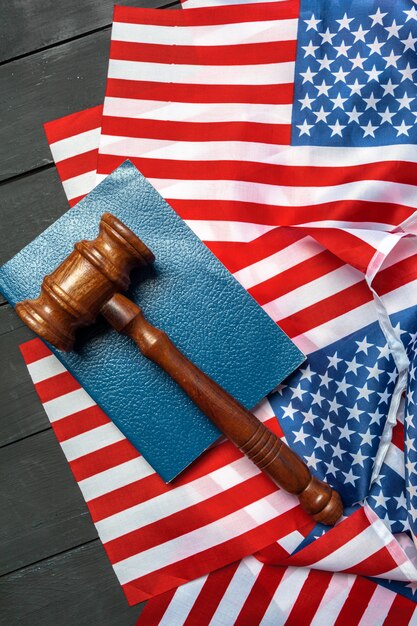
Understanding the dynamics within the Supreme Court, it becomes clearer why certain types of cases may be favored and how decisions might align with specific judicial philosophies.
- Originalism: This interpretive method could lead to reversals of precedents.
- Federalism: The balance of power between state and federal governments may shift.
- Individual Liberties: Expect debates on the extent of constitutional protections.
Ultimately, the cases chosen and decisions rendered will significantly impact how legal and political issues are approached in the United States.
Key Cases to Watch in 2025
Several key cases are expected to reach the Supreme Court in 2025, each carrying the potential to significantly impact American law and politics. These cases span a variety of critical issues, from voting rights to environmental regulations.
Understanding the details and potential outcomes of these cases can provide insight into the future direction of the court and its influence on the nation.
Voting Rights and Electoral Regulations
Cases challenging state voting laws could redefine the landscape of elections. Questions about voter ID laws, redistricting, and campaign finance regulations may come under scrutiny.
Environmental Regulations and Federal Oversight
Environmental cases often involve the balance between economic development and environmental protection. Decisions related to the scope of the Clean Air Act and the Endangered Species Act could have far-reaching implications.
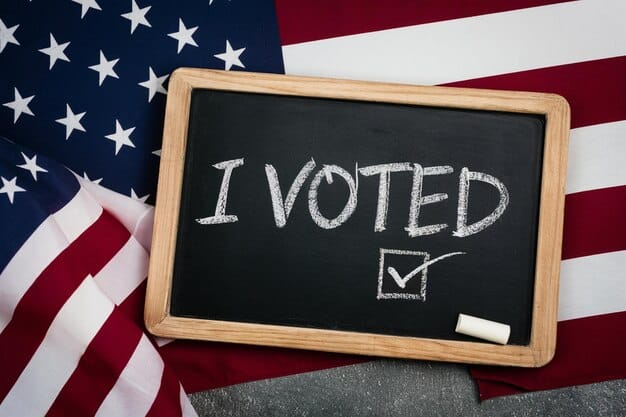
Monitoring these cases closely will be crucial for understanding the evolving legal and political landscape, and how they could affect communities and industries nationwide.
- Affirmative Action: Expect challenges to existing policies aimed at promoting diversity.
- Immigration: Cases related to border security and the rights of immigrants may arise.
- Healthcare: The Affordable Care Act and other healthcare laws could face further legal challenges.
These cases collectively represent pivotal moments that will shape the interpretation and application of laws across the country.
Potential Impacts on Voting Rights
Decisions made by the Supreme Court regarding voting rights have the potential to significantly alter the way elections are conducted in the United States. These rulings can directly influence who has access to the ballot box and how easily they can exercise that right.
Understanding these potential impacts is essential for voters, policymakers, and anyone concerned with the democratic process.
Voter ID Laws and Accessibility
The Supreme Court’s stance on voter ID laws will determine whether states have the power to require specific forms of identification at polling places. Such laws can disproportionately affect minority and low-income voters who may not have access to the required identification.
Redistricting and Fair Representation
Cases involving gerrymandering, the practice of drawing electoral district lines to favor one political party, can impact the fairness of elections. The Supreme Court’s rulings on these cases could lead to more competitive and representative districts.
These rulings will play a critical role in shaping the democratic landscape and ensuring that all citizens have an equal opportunity to participate in the electoral process.
- Automatic Voter Registration: Court decisions could either support or hinder efforts to make voter registration more accessible.
- Early Voting: Challenges to early voting periods could impact voter turnout, especially among working families.
- Felon Disenfranchisement: Rulings on the rights of individuals with past felony convictions to vote could restore voting rights to millions.
The importance of these cases cannot be overstated, as they directly influence the integrity and inclusivity of American elections.
Environmental Regulations and Their Future
The Supreme Court’s rulings on environmental regulations will shape the future of environmental protection in the United States. These decisions have the power to either strengthen or weaken federal oversight of industries that impact the environment.
Understanding these potential outcomes is crucial for businesses, environmental advocates, and anyone concerned about the health and sustainability of the planet.
The Scope of the Clean Air Act
The Clean Air Act empowers the Environmental Protection Agency (EPA) to regulate air pollution. Supreme Court decisions could either expand or limit the EPA’s authority to set emission standards for various industries.
Endangered Species Act and Conservation
The Endangered Species Act protects threatened and endangered species and their habitats. Rulings related to this act could affect how development projects are managed and whether certain areas are protected from exploitation.
These decisions play a crucial role in balancing economic growth with environmental stewardship, and will ultimately impact the health and well-being of communities across the nation.
- Wetland Protection: The definition of what constitutes a protected wetland could be narrowed or expanded by the court.
- Climate Change Regulations: The EPA’s ability to regulate greenhouse gas emissions could be challenged, impacting efforts to combat climate change.
- Pipeline Approvals: Cases involving the approval of pipelines could raise questions about environmental impact assessments and indigenous rights.
These cases collectively represent critical tests of the legal framework designed to protect the environment for future generations.
Impact on Social Issues and Individual Liberties
Beyond voting rights and environmental regulations, the Supreme Court’s decisions in 2025 will touch on a variety of social issues and individual liberties. These rulings can have significant consequences for how people live their lives and exercise their rights.
Understanding these potential impacts is essential for advocates, policymakers, and anyone interested in the evolution of American society.
Religious Freedom and Discrimination
Cases involving religious freedom often grapple with the balance between protecting religious expression and preventing discrimination. The Supreme Court’s rulings could either expand or limit the ability of individuals and organizations to assert religious exemptions from certain laws.
Gun Rights and the Second Amendment
The Second Amendment guarantees the right to bear arms, but the scope of this right is frequently debated. Supreme Court decisions on gun control laws could affect the types of restrictions that states and the federal government can impose on firearms.
These rulings will shape the contours of individual freedom and equality in the United States, and will have lasting effects on the social and political landscape.
- LGBTQ+ Rights: Cases involving same-sex marriage, transgender rights, and discrimination protections may arise.
- Privacy Rights: The Supreme Court may address questions about digital privacy, surveillance, and data security.
- Freedom of Speech: Cases involving political speech, hate speech, and online expression could test the boundaries of the First Amendment.
How to Stay Informed and Engaged
Staying informed about the Supreme Court’s decisions and their potential impacts is essential for active citizenship. By remaining engaged and understanding the issues at stake, individuals can better advocate for their interests and participate in the democratic process.
Here are several ways to stay informed and make your voice heard:
Follow Reputable News Sources
Reliable news outlets provide accurate and in-depth coverage of Supreme Court cases. Look for sources that offer balanced reporting and avoid sensationalism.
Engage with Legal Experts and Advocacy Groups
Legal experts and advocacy groups often provide analysis and commentary on Supreme Court decisions. Following these voices can help you understand the legal nuances and potential implications of rulings.
Participate in Civic Organizations
Civic organizations offer opportunities to learn about the issues and advocate for change. Consider joining a group that aligns with your values and interests.
By staying informed, engaged, and proactive, individuals can play a meaningful role in shaping the future of their communities and the nation.
- Attend Public Forums: Participate in town hall meetings and public discussions about Supreme Court decisions.
- Contact Your Representatives: Communicate your concerns and opinions to elected officials.
- Support Informed Voting: Encourage others to research candidates and vote in every election.
| Key Point | Brief Description |
|---|---|
| ⚖️ Court Composition | Conservative majority influences case prioritization. |
| 🗳️ Voting Rights | Cases on voter ID and redistricting may shift electoral access. |
| 🌎 Environmental Rules | EPA’s regulatory power may be challenged. |
| 🛡️ Individual Freedoms | Rulings impact religious freedom, gun rights, and privacy. |
Frequently Asked Questions
▼
The Supreme Court currently has a conservative majority, which influences the types of cases it hears and how it tends to rule.
▼
Supreme Court rulings can affect which voter ID laws are permissible, and influence fairness in redistricting, both of which influence electoral access.
▼
Key cases could involve environmental regulations, religious freedom, gun rights, and challenges to existing affirmative action policies.
▼
The Endangered Species Act is legislation that protects endangered species and species in danger, as well as their natural habitats, aiming to maintain biodiversity.
▼
You can stay informed and involved by following news sources and engaging with legal experts and civic organizations who offer opinions on their rulings.
Conclusion
In conclusion, the Supreme Court rulings in 2025 have the potential to significantly alter various facets of American political and social life, impacting voting rights, environmental regulations, and individual liberties. Staying informed and engaged is critical for those who seek to understand and influence the direction of the country.
